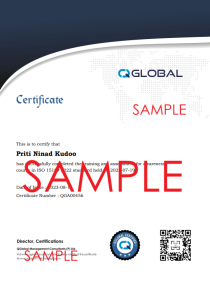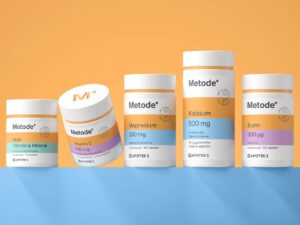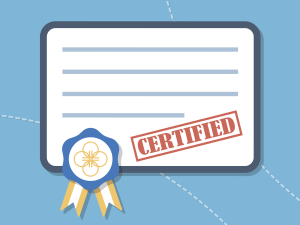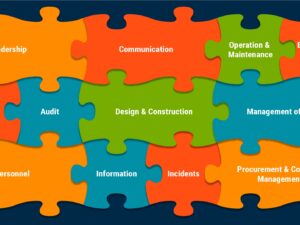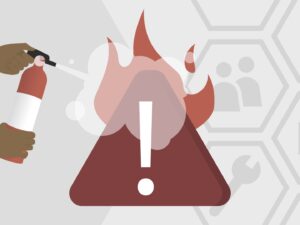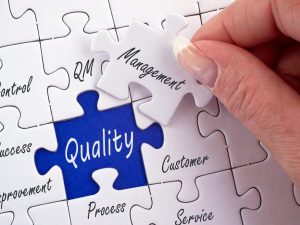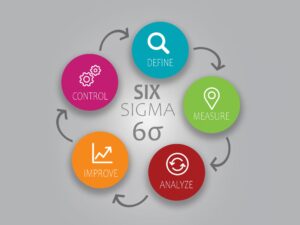Total Quality Management (TQM) - Lead Implementer Course
- Description
- Curriculum

Total Quality Management (TQM) is an enhancement to the traditional way of doing business. It is a proven technique to guarantee survival in world-class competition. Only by changing the actions of management will the culture and actions of an entire organization be transformed. TQM is for the most part common sense. Analyzing the three words, we have
- Total—Made up of the whole.
- Quality—Degree of excellence a product or service provides.
- Management—Act, art, or manner of handling, controlling, directing, etc.
Therefore, TQM is the art of managing the whole to achieve excellence. The Golden Rule is a simple but effective way to explain it: Do unto others as you would have them do unto you. TQM is defined as both a philosophy and a set of guiding principles that represent the foundation of a continuously improving organization. It is the application of quantitative methods and human resources to improve all the processes within an organization and exceed customer needs now and in the future. TQM integrates fundamental management techniques, existing improvement efforts, and technical tools under a disciplined approach. This TQM lead implementer course is good for those who need an overview of TQM concepts, or those who will be involved in the implementation of TQM practices within an organization. This TQM implementation training will guide you through the implementation process by explaining the TQM concepts and tools and how they can be applied using international best practices and methods. Using a step-by-step approach, you will learn how to develop a TQM implementation plan, create the necessary documentation, monitor the total quality management system, and achieve continual improvement.
Who Should Attend?
- Anyone responsible for implementing TQM practices
- Those who want to learn how to interpret the TQM concepts and tools
- Managers or executives practicing TQM
- Anyone looking to gain skills and knowledge to improve their career performance
Key Benefits
- Understand concepts and importance of TQM.
- Grasp the application of employee involvement, leadership and process management
- Interpret TQM concepts and its effective application for managing and improving the functioning of an organization through process approach.
- Understand and develop skills for implementation of management system to manage processes of the organization.
- Build stakeholder confidence by managing processes in line with the latest requirements
- Understand and develop problem solving skills
- Maintain and continually improve your organisation’s quality management system
- Learn techniques to create and manage documents and records relevant to total quality management system and critical to the products and services delivered
- Learn skills in human resource management, supplier management, customer management , operations management, inventory management, laboratory management, production planning and logistics management
- Learn to identify and mitigate internal and external issues relevant to businesses
- Learn to identify stakeholder expectations and prepare action plans to fulfill them
- Learn to define and optimize the processes in your organisation
- Understand the methods to develop a customer focus approach in an organisation
- Identify improvement objectives and plans to achieve them
- Learn techniques to manage nonconformity in products and services delivered and take corrective actions
- Learn to implement the communication requirements
- Help your organisation to improve quality, employee participation, teamwork, working relationships, customer satisfaction, employee satisfaction, productivity, communication, profitability, and market share
Learning & Evaluation Method
Role plays, online workshops, practice questions, group discussions etc will be conducted during the course to gain sufficient hands on experience in the subject. After the completion of this course you can participate in the online examination. Attending the exam is not mandatory to receive the course completion certificate.
Certification
There are increasing numbers of organizations, who prefer candidates those who have completed management system trainings from a recognized institution. Certification demonstrates your commitment to superior professionalism, upholding industry standards, and continued learning. These merits can help boost your professional credibility and prestige within your own network, in your organisation, with your current clients, and when pursuing new business opportunities. After the successful completion of the course and final exam, you will be awarded with a certificate of completion issued by QGlobal. Your credentials will be made available in the global online directory and can be verified by anyone searching with the certificate number. Without doubt we can say that our training courses are well recognized and sought after by organizations across various geographies.
Buy for group Are you planning to buy this course for a group? We have the best prices for you! Select ‘Buy for Group’ option and add to the cart. You will get a discount of 60 – 75% for a group of up to 10 participants. To make a group purchase, create your group name and add individual emails of up to 10 participants. Each participant will get the access to the course materials, exam and the certificate. We will arrange one live-online session for the entire group.
Total: 206 Courses View all
Total: 206 Courses View all
-
1TQM - Introduction to the TQM concept
- TQM approach.
- Definitions of quality.
- Obstacles
- Benefits of TQM.
- The Cost of Quality (COQ)
-
2TQM - Leadership
- Leadership habits.
- Leadership ethics.
- Quality council.
- Leadership Values,
- Concepts, and Framework.
- Quality statement. Strategic planning.
- Communications.
-
3TQM - Employee involvement
- Employee motivation.
- Employee surveys.
- Employee empowerment.
- Building teams.
- Employee Recognition and Reward.
-
4TQM - Customer management
- Knowing the customer.
- Customer perception of quality.
- Customer feedback.
- Addressing customer complaints.
- Translating customer needs into requirements (The Kano model).
- Customer retention.
-
5TQM - Process management
- Defining the process.
- PDSA cycle.
- Types of problems.
- Risk based approach.
- Non conformity and corrective action.
- Improvement strategies.
-
6TQM - Supplier management
- Supplier relationships.
- Supplier evaluation and selection.
- Managing non conformities.
- Supplier performance evaluation.
-
7TQM - Performance measures
- Bench marking.
- Quality objectives.
- Monitoring and measuring of data.
- Internal audit.
- Management review.
-
8TQM - Inventory management
- ABC analysis.
- First in –First out (FIFO).
- Supplier managed inventory.
- Just in time (JIT).
- Economic order quantity (EOQ).
-
9TQM - Documentation
- Preparing quality manuals.
- Preparing policies and procedures.
- Preparing formats and checklists.
- Control of documents and records.
- Document control practices.
- Identification and traceability of TQM documents.
- Storage and retention of documents and records.
- Managing obsolete documents.
-
10TQM - Commonly used tools and techniques
- 7 QC tools.
- Statistical Quality Control.
- Taguchi methods.
- 5 why analysis.
- Balance scorecard.
- Gemba walks.
- 5S.
- Kaizen.
- Reengineering.
- Statistical process control.
-
11TQM - Quality Function Deployment (QFD)
- QFD team.
- The voice of the customer.
- House of quality.
-
12TQM - Quality by design
- Design for six sigma.
- Communication models.
- Tools misconceptions and pitfalls.
-
13TQM - Failure mode and effect analysis (FMEA)
-
14TQM - Total productive maintenance (TPM)
-
15TQM - 7 QC tools

